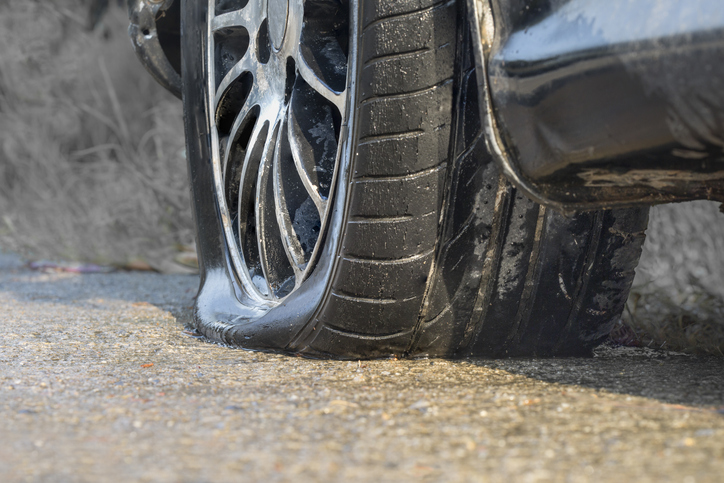Nobody likes the sudden loud sound of a tire blowout. Not only are they scary, but they can also be dangerous. Tire blowouts occur when the pressure inside a tire is too great for it to contain and it bursts, resulting in a flat tire. The high pressure can happen for various intrinsic or extrinsic reasons—some of which should be monitored by car owners and some that could have been avoided all together had certain preventions taken place, such as regular tire servicing. In this blog post, we’re going to discuss why tire blowouts happen, and how you as an attentive car owner can avoid them altogether. Keep reading if you want to ensure your safety on the road!
Reasons You May Experience a Blowout
A tire can blow out for a variety of reasons, including under-inflation, overloading, and damage
Tire blowouts can be frustrating and dangerous, but many people don’t realize just how easily they can happen. One of the biggest culprits of tire blowouts is under-inflation. When tires are not inflated adequately, the tire’s rubber casing is unable to contain the air pressure within and will eventually give way. Overloading a tire is another frequent cause, as exceeding the tire’s load capacity puts too much strain on it, resulting in a tire blowout.
Additionally, if a tire has been damaged by large punctures or cuts, it could result in sudden tire deflation which can lead to a tire blowout. Knowing these causes can help you avoid disaster, making sure to take precautions such as regularly checking tire pressure, getting your tires serviced, monitoring the load limit for each tire, and immediately taking your vehicle into a tire repair shop if any signs of damage become visible.
Check Your Tires Regularly
If you don’t regularly check your tires, you could be putting yourself at risk for a blowout. Proper tire maintenance is essential for a smooth and safe ride, as neglecting to do so can prove to be disastrous. If you don’t remember to check your tire pressure regularly or spot any uncomfortable wear on the tire walls, a blowout could be just around the corner. It’s vital that you not only check your tire pressure, but also consult with tire repair professionals at the first sign of tire damage. Make sure both your tire and your safety don’t suffer from a lack of basic tire maintenance!
The Cost of Tire Repair
A blowout is not only dangerous but also costly – it can damage your car and lead to an expensive tow bill. A tire blowout is an emergency that isn’t just dangerous, but costly as well. Not only is the tire itself ruined, but it can also lead to further damage in the form of bent or broken alloy wheels or a damaged tire well. And replacing these parts can add up quickly.
Additionally, you may need to hire a tow truck and incur even more costs for the tow bill. The best way to stay safe and avoid these costs all together is to stay on top of tire service, such as tire rotations, wheel alignments, and replacements. Taking note of any tire-related warning signs that your car may be giving off can also help you with preventative maintenance and save you from an expensive surprise down the road.
Preventative Measures are Key
There are a few things you can do to prevent a tire from blowing out, including checking the pressure and tread depth, avoiding potholes and debris on the road, and using a quality tire sealant. Taking preventative tire service measures can be beneficial in avoiding tire blowouts. Having the tire pressure levels checked often and ensuring the tires have adequate tread depth are important steps in helping to reduce tire-related incidents.
It is also important to rotate your tires every 6,000 miles for better tire performance and tire life. Good tire maintenance is key for a safe and worry-free ride, as well as improved fuel efficiency of your vehicle. If it has been a while since your tires have seen a service appointment, schedule one today. Taking simple preventative tire service steps can help avoid costlier tire-related problems in the long run.
Conclusion
We hope that this article has been helpful! By following these tips, you can help keep your tires in good condition and avoid costly repairs down the road. With regular tire service and maintenance, and ensuring your are driving on tires that aren’t bald or care, as well as ensuring they are always full of air, you will offer yourself safety and assurance when driving. After all, tire repair can be costly, yet so easily avoided.
